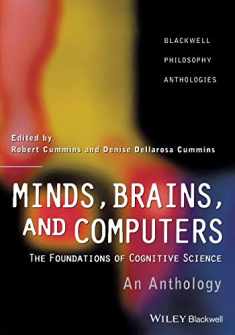
Mindware: An Introduction to the Philosophy of Cognitive Science
Book details
Summary
Description
Ranging across both standard philosophical territory and the landscape of cutting-edge cognitive science, Mindware: An Introduction to the Philosophy of Cognitive Science, Second Edition, is a vivid and engaging introduction to key issues, research, and opportunities in the field.
Starting with the vision of mindware as software and debates between realists, instrumentalists, and eliminativists, Andy Clark takes students on a no-holds-barred journey through connectionism, dynamical systems, and real-world robotics before moving on to the frontiers of cognitive technologies, enactivism, predictive coding, and the extended mind. Throughout, he highlights challenging issues in an effort to engage students in active debate. Each chapter opens with a brief sketch of a major research tradition or perspective, followed by concise critical discussions dealing with key topics and problems.


We would LOVE it if you could help us and other readers by reviewing the book
Book review




